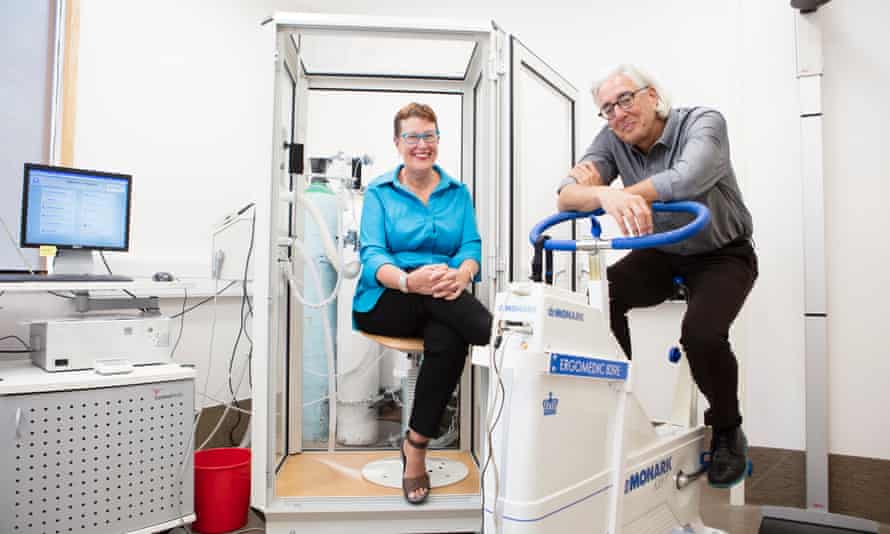The Dunedin study at 50: landmark experiment tracked 1,000 people from birth | New Zealand
[ad_1]
In 1972, a researcher in a small city at the bottom of New Zealand set out to track the development of more than 1,000 newborn babies and their health and behaviour at age three, not realising then that over the next 50 years, the research would morph into one of the world’s most important longitudinal studies.
The study did not stop at three years, instead it gathered pace, following the lives of the participants from birth into adulthood, and creating a comprehensive body of data that has yielded more than 1,300 peer-reviewed research papers, reports and books.
This week marks the 50th anniversary of the Dunedin Multidisciplinary Health and Development Research Study, more commonly known as “the Dunedin study”. The study has some limitations from a domestic perspective – the cohort is reflective of 1970s Dunedin and not the more ethnically diverse New Zealand of 2022 – but it does capture a group of people who have grown up in all sorts of households.
Founded by Dr Phil A. Silva in 1972, and now under the directorship of professor Richie Poulton, the study continues with just under 1,000 members, who remain completely anonymous to everyone except the researchers, and all of whom turn 50 over the next year.
Every few years, since the members were born, they have returned to the University of Otago research centre, in Dunedin, flying in from all over the world to spend a few days having their mental and physical health thoroughly examined. Everything from dental to cardiovascular health, from sexual behaviour to relationships and lifestyle are covered.

“It’s incredibly important that we acknowledge the real heroes of the study, which are the study members. They only do it for one main reason, which is, they think it might help other people,” says Poulton, who joined the team in 1985.
At that stage, the study members were becoming teenagers and the work led by Prof Terrie Moffittwould evolve into a paper on antisocial behaviour in adolescents – a body of research that has become the most cited theory in criminology.
Speaking from her home in North Carolina, Moffitt says: “So many countries use that 1993 paper as a justification for reforming their juvenile justice system to be less punitive and more supportive to young offenders.”
The data has also helped show that child maltreatment can lead to systematically higher levels of body-wide inflammation and an elevated risk of depression, Poulton says. “Inflammation is a marker of risk for all sorts of other physical diseases.”
“Children exposed to adverse psychosocial experiences have enduring emotional, immune, and metabolic abnormalities that contribute to explaining their elevated risk for age-related disease,” the paper reads.
As the years evolved, so too did the expertise the researchers needed to keep up with their members’ new life stages.
“When they were teenagers, it was drugs and alcohol and risky sex and law breaking – we had to become an experts in that but then they grew out of it. Then we had to become expert in how they pick a partner, how they decide to have children and when to have their first baby. Now that they’re going to be in their 50s, we’re studying how they’re preparing for old age,” Moffitt, who is still an associate director, says.
The research will also shift to reflect changes in society – including delving into the thorny area of social cohesion, or, what makes communities and societies stick together, and why, all over the globe, they are becoming unstuck.
‘The best study of our type in the world’
“We thought, well, hold on, we’ve got a whole bunch of information on just about everything but we haven’t got a good measure of social cohesion yet,” Poulton says.
With that in mind, the team will now develop a method for understanding what underpins socially cohesive behaviour.
In a stroke of fortunate timing, the last assessment was taken in 2019 – just before the pandemic hit. But not wanting to miss an opportunity, the team contacted the members in 2021, to interview them about their experience of the pandemic and their plans for getting the vaccine, with that data due to be released soon, Moffitt says.
There are three things that set the Dunedin study apart from longer running studies overseas, Poulton says: a high retention rate (94% of the original cohort have stayed), a multidisciplinary approach that gathers an “incredible” breadth of information, and testing and interviewing people face-to-face rather than through questionnaires.
“That’s a very rare combo – the Holy Trinity in my mind – to make us the best study of our type in the world.”
[ad_2]
Source link